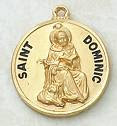Happy May Day!
The first time I consciously remember holding an affection for mathematics was in the Fifth Grade. Everyday after lunch we would pick up our notebooks and walk next door to study math for an hour. Before that I know I loved science and engineering, but I do not remember how serious I was about it. The space shuttle Challenger blew up when I was in the Fourth Grade. I know I was disturbed quite a bit. I thought it was great that a school teacher was going up into outer space. More than that I thought it was amazing that we could do it at all. My dad says I cried when the shuttle exploded, but not for the people on board, because I did not understand how such a wonderful machine could just explode. My compassion for people had grown by the time the Columbia burned up on reentry, and while my primary concern was for the astronauts' families, I still mourned (just a little bit) the loss of such wonderful technology we so easily hurled around the world. The bottom line is we probably will never be complete masters of science and mathematics no matter how much effort and knowledge we throw at it.
Mathematics is often called the universal language. This has had just one meaning to me until recently which is that mathematics is the language that everybody understands, but how about this meaning as well - mathematics is the language in which the universe speaks to us. Early mathematicians believed that. I think that is what made them so great. When I was in the Ninth Grade and beginning to learn about Geometry for the first time in depth Pythagoras was introduced to me. He never escaped mention for the rest of my career with mathematics. He lived 2500 years ago! He is still a household name! Two hundred years later Euclid lived and wrote The Elements, which was THE authority in mathematics until the Twentieth Century AD, and it is still considered highly authoritative. The only reason it fell from its exalted position to a slightly less exalted position was because it starts with five propositions and the fifth was dubbed as erroneous. Who has not heard of Sir Isaac Newton or Albert Einstein? The thing these people had in common was their faith in God and the belief that mathematics and science ultimately lead to Him.
My own discipline of favor is biology, but that covers a fair amount of chemistry too. In college I learned more about photosynthesis than I ever wanted to know, but that may come in handy soon as I try to explore the presence of God in the product of photosynthesis. Before I get there though I will have to discuss basics of science, kind of lay down the ground rules, which I am hoping will also help me to organize my thoughts (which I consider, next to my ignorance, to be my main liability in this effort I am beginning). So I look forward to all the help I can recruit in this and look forward to seeing the results it will yield.
Tuesday, May 1, 2007
Subscribe to:
Post Comments (Atom)





No comments:
Post a Comment